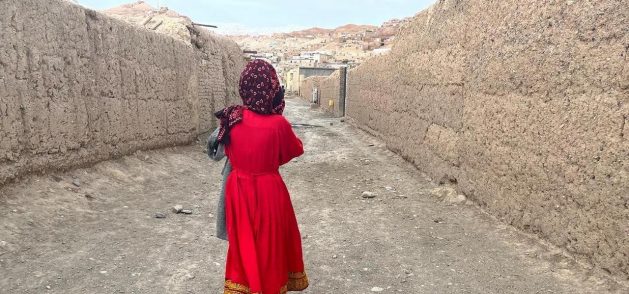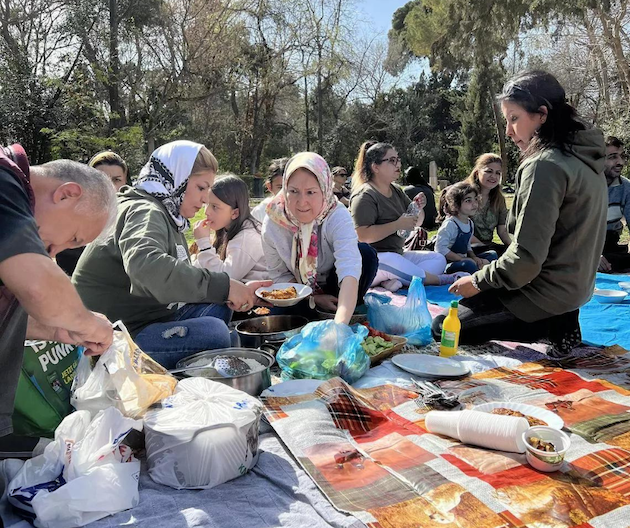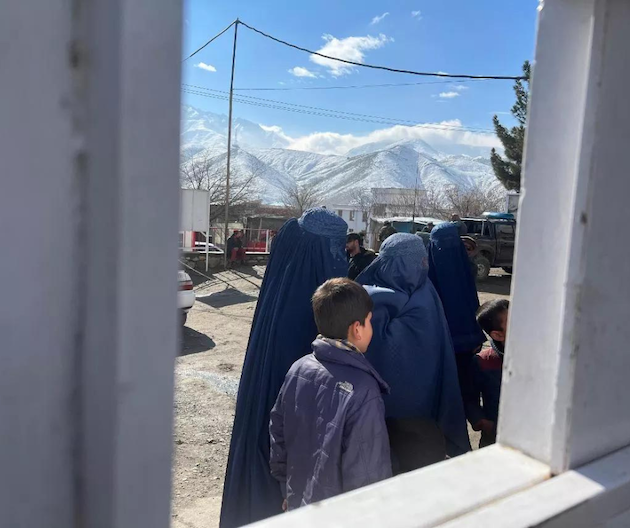The Trap: A Journey from Afghanistan to Europe

KABUL & ATHENS, Dec 22 (IPS) - Maliha looks confident in a café in Athens as she tells the story of her journey from Afghanistan to Europe. But as she starts recounting how a smuggler assaulted her in Turkey two years ago, she pauses, looking the other way and fiddling with her loose hair.
It makes her anxious when she remembers it. She was traveling alone and soon realized she was the only woman on board a bus to the border with Greece.
“[The smuggler] told me to get off. He wanted me to himself.” With unusual strength, the young woman managed to escape as the man was trying to rape her. Still shaken, she tried to report the crime to the local police, but she felt they were more concerned about her status as an illegal migrant than the attempted rape. “Luckily, I had a contact on Facebook a cousin who I knew lived in Turkey but whom I never met.” He happened to live near that police station, and he convinced the officials to let her go.

Now Maliha lives in Athens as a “free woman” – a fact that she remarks upon while wearing leggings and no head covering.
The violence experienced by Mahila is not an isolated case. An investigation into the journey of Afghan women from their home country to Europe carried out in Afghanistan, Turkey and Greece has revealed a pattern of systematic violence throughout, their vulnerability heightened by lack of documents and money. Women, some traveling alone or only with their children, pay to get to Europe only to become victims of trafficking and sex slaves.
According to 31-year-old Aila, an Afghan refugee and former Médecins sans Frontières worker in refugee camps in Athens, “some 90% of women suffer a form of violence during the journey.”
“When your life is in the hands of smugglers,” continues Aila, “it’s not up to you to decide whom to stay with, what to do, where to go: it’s the smuggler who decides. Even if you are with your family or the members of your family, he can still threaten you with a weapon, and if he wants to separate you from them, he’ll do it”.
Afghans are now the second largest group of asylum seekers in the EU after Ukrainians, but the flow of asylum seekers started well before the Taliban takeover of Kabul in August 2021. According to the International Organization for Migration, nearly 77,000 women and girls were registered at arrival by sea and by land in Europe between 2018 and 2020, making up 20 percent of total arrivals. Women make up an increasing percentage of asylum requests globally, all facing gender-based risks.
The reasons behind Afghans' search for a safe place run deep in a country torn by decades of war. Social and financial restrictions within a deeply patriarchal society and the hope for a better life abroad had already pushed many to leave the country even before the arrival of the Taliban.
However, the challenges of the journey can be harrowing. “I remember traveling with a 10-year-old and her grandmother,” Aila recalls. “During the journey, her grandmother died, and she was handed over to the trafficker,” says Aila, describing one of the most traumatic episodes she witnessed.
“Was she raped? Of course. For them, she was a woman”.

The risks are so stacked against women that word of mouth has led to the development of 'survival' techniques, such as dressing up as a man. Aila says she put on a similar short jacket, jeans, and sneakers to that of other boys. “I kept my hair hidden under my cap. And when the trafficker gave me his hand to get on the boat, he said, "Hey, boy." I didn't answer. "Never talk to traffickers," is the second 'tip' dispensed by Aila.
Acceptance rates of Afghan asylum seekers are now high, especially in countries such as Spain and Italy, with 100% and 95% in 2021, respectively, and 80% in Greece, the first EU frontier for the many who come after spending months or years in Turkey or Iran.
Yet getting adequate assistance after suffering abuse, rape and forced prostitution is a different story. The violence suffered often doesn’t get denounced by the police due to cultural or linguistic barriers and the stigma surrounding rape or forced prostitution. Lack of adequate protection in Europe is also a reason, so NGOs set up by fellow Afghans try to step in.
Months of interviews with Afghan asylum seekers in Afghanistan, Turkey, and Europe expose the extent of the danger for women who embark on a journey organized by smugglers. Direct witnesses’ accounts and NGO transcripts, seen exclusively by this reporter, reveal a pattern of how women – and in particular Afghans belonging to ethnic minorities – fall into a ‘trap’ of violence.
Freshta spent years between Iran and Turkey with a sick brother before eventually succeeding in reaching a refugee camp in Greece and then a place in Athens hosted by a friend. However, her attempts to find a job and become independent soon turned into a prolonged series of tortured experiences. The possibility of asking for help was radically reduced by her illegal status and lack of documents.
“One day, I was in a café with my friend, and she introduced me to this man. We only knew that he was a trafficker of Iraqi nationality.” He, himself a refugee, knew very well how vulnerable women like Freshta are. “He started following me and kept saying that I should go with him.” Her constant rejections didn’t work. On the contrary, he threatened to kill her brother, who was still in the refugee camp – a sign of the long reach of influence traffickers can call upon.
One day, despite attempts to protect herself, hiding for days at a friend's house, the man managed to kidnap her and take her to her apartment. He then hit her on the head, threatening her with a knife pointed at her stomach and forcing her to get into his car. At that moment, Freshta became a slave, first suffering violent rape, with beatings that made her pass out because she also suffered from asthma.
"When I woke up, he wasn't there. I was full of pain and didn't know what to do; I was in shock. I went to the bathroom, got washed, dressed, and cried."
Upon his return, the trafficker told her that she now belonged to him. If she went out and told anyone what had happened, then he would kill her.
Freshta managed to hide at her friend’s again, but again the man managed to take her by force, beating her and locking her up at home for weeks, repeatedly raping her. Freshta got pregnant. "He told me I couldn't do anything because he had become a Greek citizen, and I was nothing; I didn't have any document."
It took many weeks and the help of an association to allow her to report the incident. She had an abortion. The woman has since been moved by the Greek government to a secure facility in an undisclosed location.
To add to Freshta's tragic testimony is the fact that, as the operator of an NGO in Athens explains, "There are many cases of sexual slavery like this, which are not reported by the victims because they are afraid of being stigmatized and of their lack of documents.” The perpetrators of the violence can be fellow nationals, generally belonging to a different ethnic group and, to a lesser extent, other nationalities.
The lack of support is accentuated by a form of class distinction within the refugee community and by the way resources are thus distributed, according to some of the Afghan women interviewed in Athens. “The refugees who arrived in Europe through the evacuation program consider themselves 'different' from those who arrived here on foot, with the traffickers. And they are also treated differently by the authorities,” says Aila.
While for men, the lack of documents, money, and a family network leads more easily to labor exploitation, women can often fall victim to sexual exploitation. Some women are "passed from trafficker to trafficker," says Aila, while the local association also reports cases of forced prostitution just outside the camps. But even in the aftermath of a violent attack, NGOs are worried about the short time women are allowed to spend in safe structures, as well as the limited space available there. Resources do not meet the seriousness and extent of the problem.
“When they asked me if I wanted to report the man , I said yes, but only if I had a safe place to stay first,” says Freshta. “I was so desperate that I left behind everything I had.”

This project on trafficking has been developed with the financial support of Journalismfund.eu
https://www.journalismfund.eu/
IPS UN Bureau Report
Follow @IPSNewsUNBureau
Follow IPS News UN Bureau on Instagram
© Inter Press Service (2022) — All Rights Reserved. Original source: Inter Press Service

